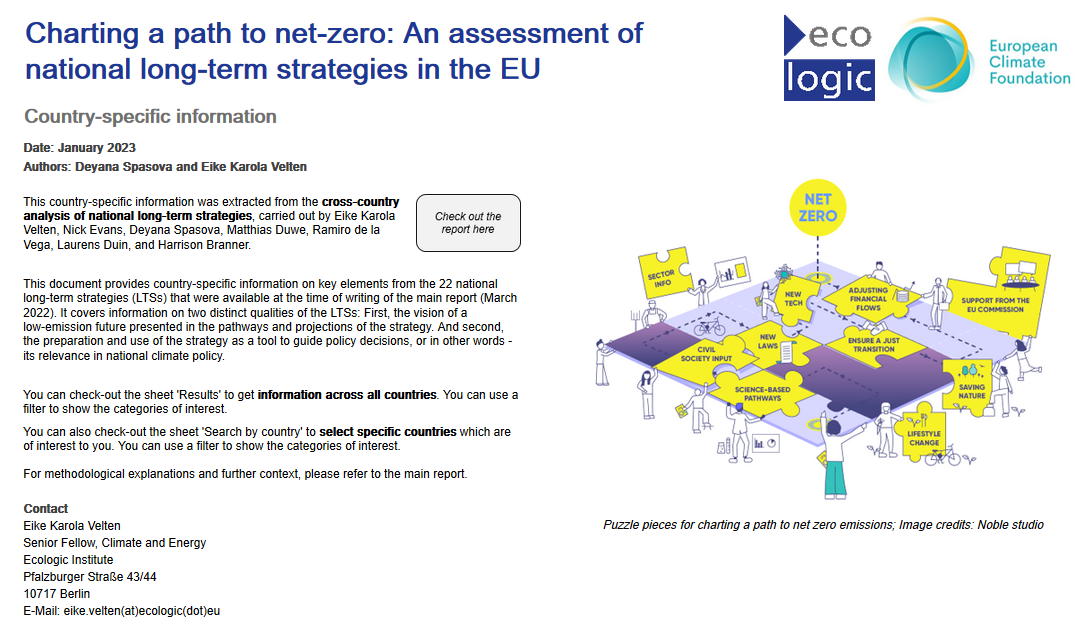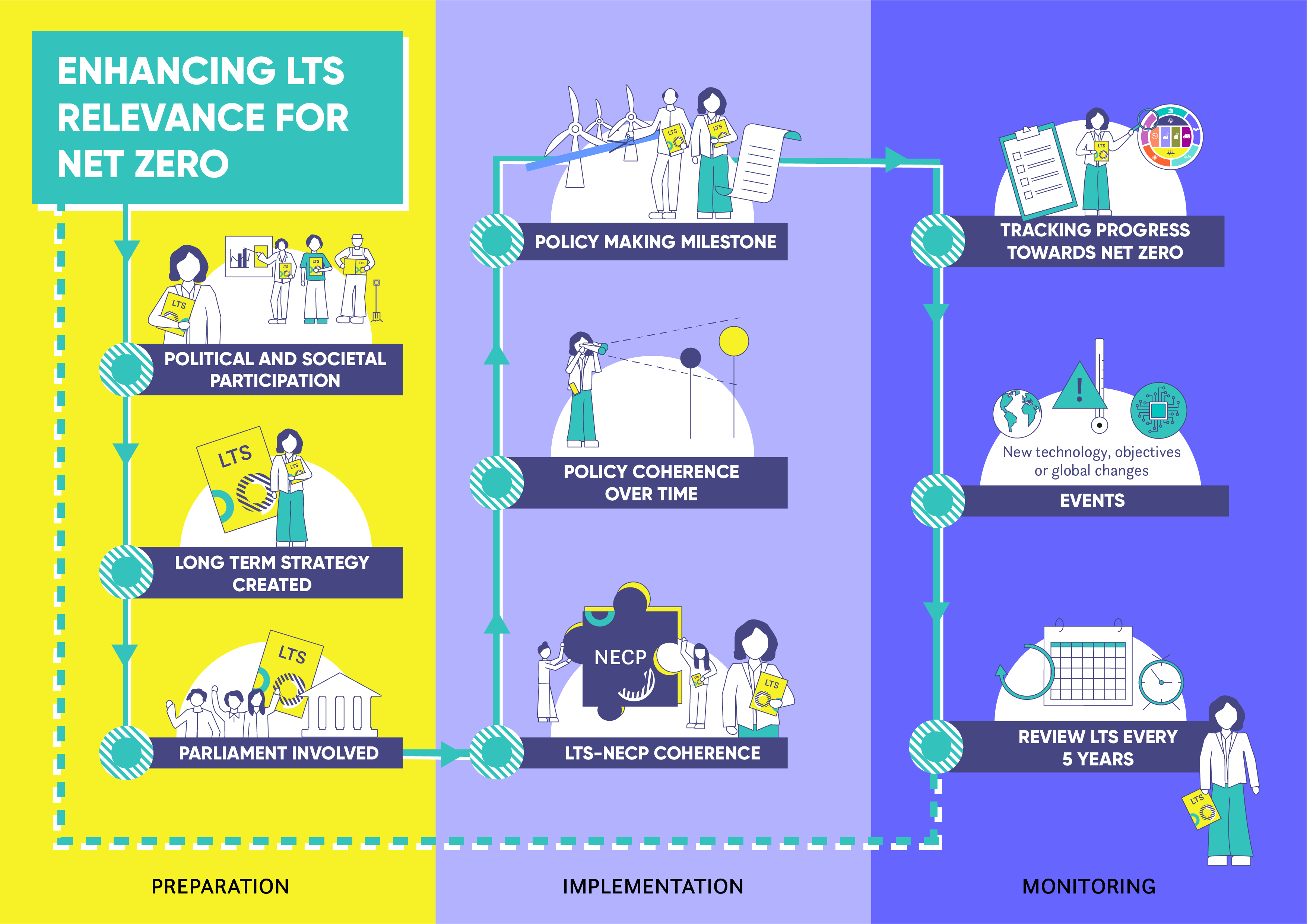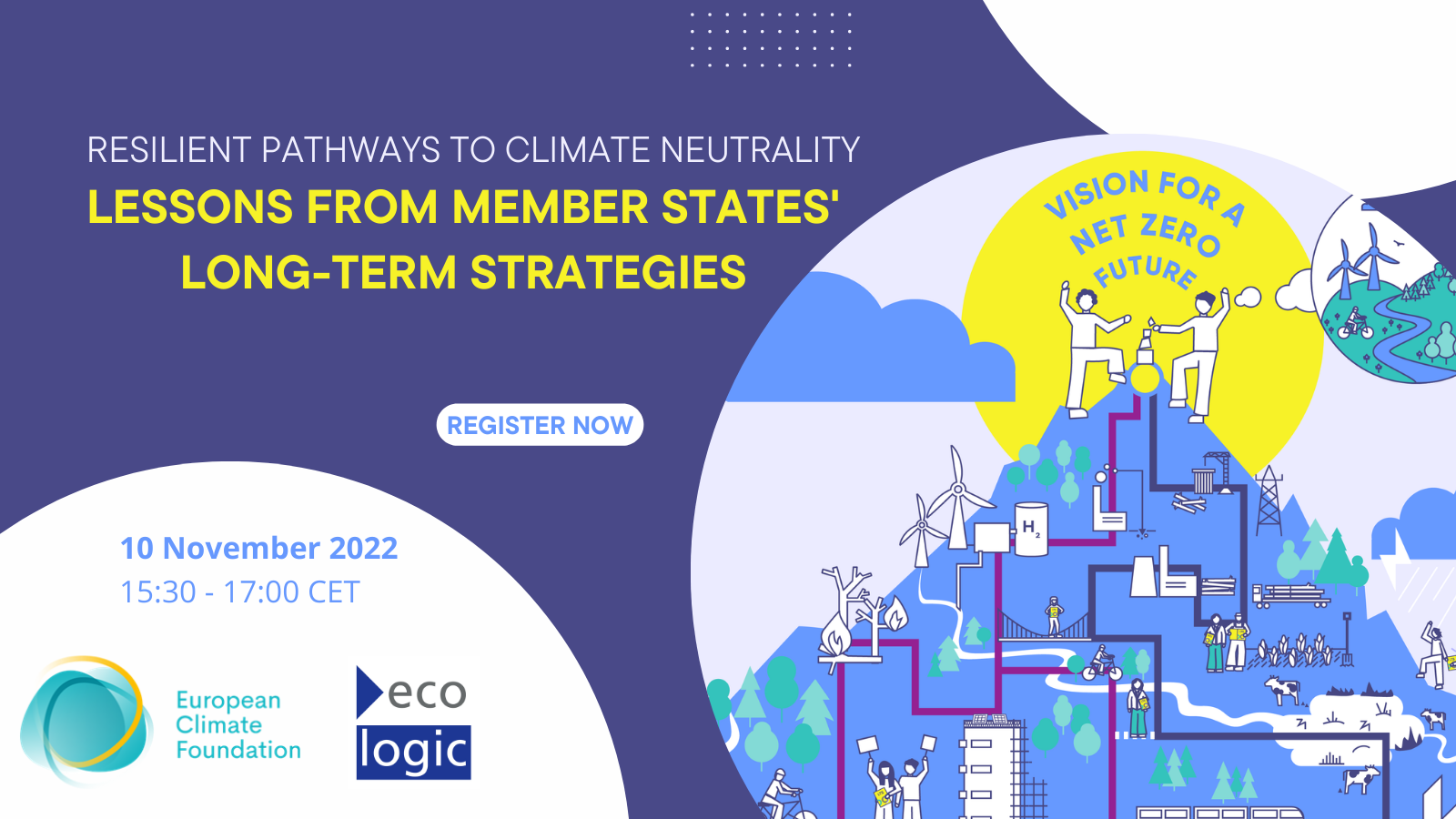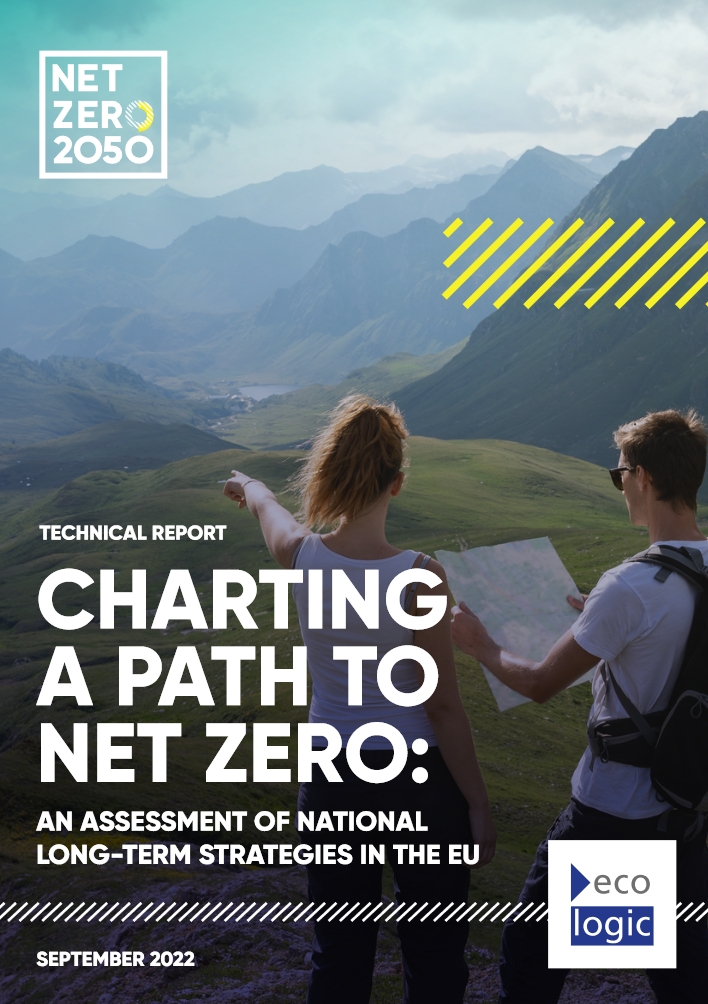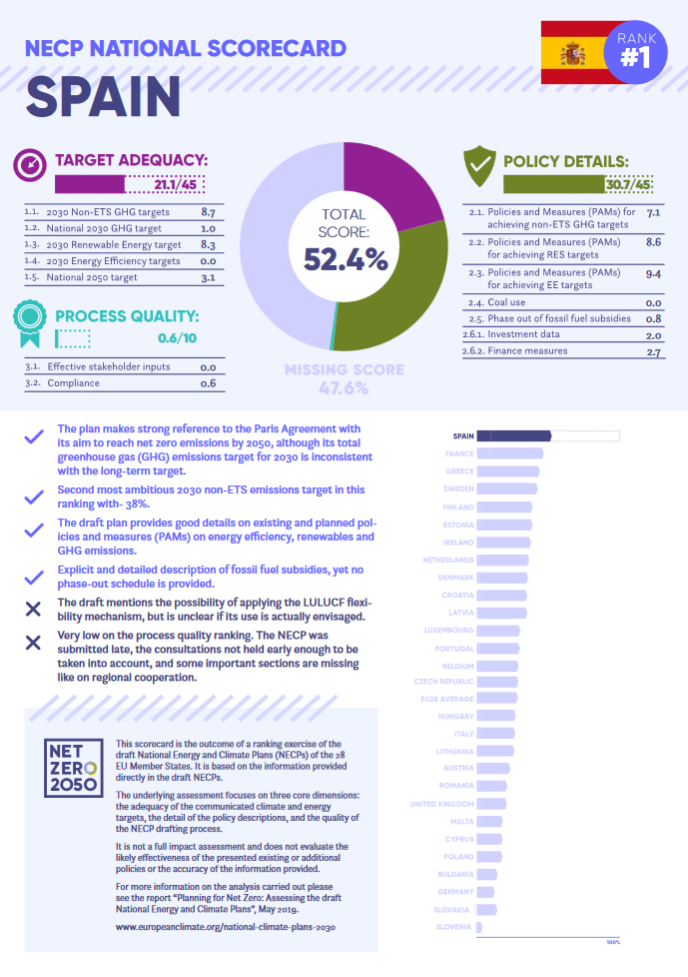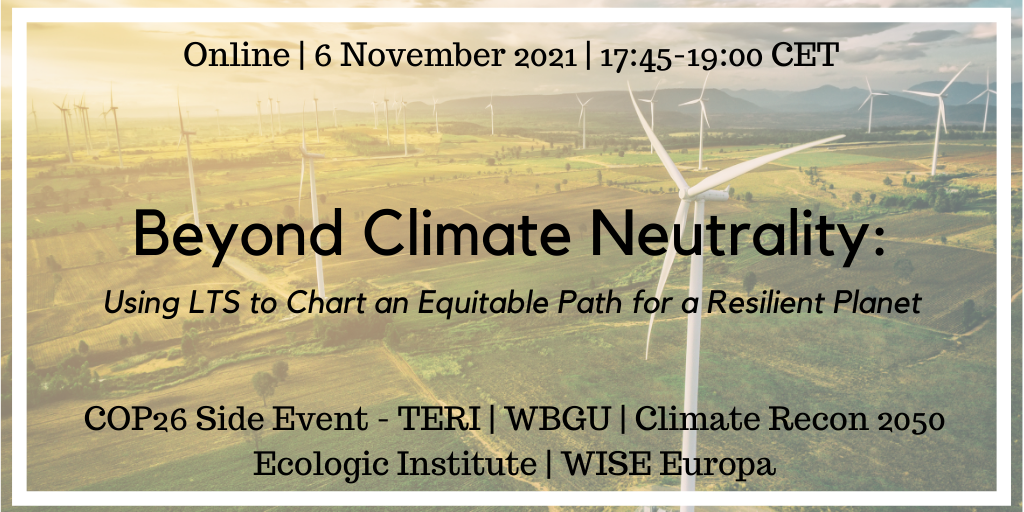Charting a Path to Net Zero – Summary
An assessment of national long-term strategies in the EU
- Publication
- Citation
Velten, Eike Karola, Duwe, Matthias, Evans, Nick (2022): Charting a path to net zero: An assessment of national long-term strategies in the EU. Summary. Ecologic Institute, Berlin.
This summary distills the insights from the technical report "Charting a Path to Net Zero: An assessment of national long-term strategies in the EU" commissioned by the European Climate Foundation and written by Ecologic Institute. It summarizes the key findings and recommendations from an assessment of 22 long-term strategies (LTSs) of EU Member States available as of March 2022. The summary and the full technical report are available for download.
Contact
- Language
-
English
- Authorship
- Credits
Acknowledgements:
We want to thank Erica Hope, Charlotte Billingham, Donal Mac Fhearraigh, Sharon Turner and Zoltan Massay Kosubek from the European Climate Foundation (ECF) for inspiration and support.
Furthermore, we are grateful for the support from Kamil Laskowski from WiseEuropa, Peter Robert Walke from Swedish Environment Institute Tallinn and Katarina Trstenjak from Jožef Stefan Institute. We also want to thank our colleagues Katharina Umpfenbach and Ewa Iwaszuk for content check and advice on readability.
Special thanks also goes to the national experts which helped us understand the relevance of national strategies in their country: Detelina Petrova, Ministry of Environment and Water of Bulgaria and Radu Dudau, Energy Policy Group (EPG); Michal Daňhelka, Ministry of Environment of Czechia and Karel Polanecky, Friends of the Earth Czechia; Erik Rasmussen, Ministry of Climate, Energy and Utilities of Denmark and Dan Belusa, The Danish 92 Group; Gwenaël Podesta, Ministry of the Ecological Transition and Nicolas Berghmans, Institute for Sustainable Development and International Relations (IDDRI); Martin Weiss, Federal Ministry for Economic Affairs and Climate Action of Germany and Sabine Gores, Öko-Institut; Krzysztof Kobyłka, WiseEuropa; Francisco Ferreira, ZERO and Pedro Barata, Environmental Defense Fund; Carlota Ruiz Bautista, Instituto Internacional de Derecho y Medioambiente (IIDMA) and Antxon Olabe, formerly Ministry of Ecological Transition of Spain.
Any errors or mistakes are the sole responsibility of the authors.
- Funding
-
European Climate Foundation (ECF), International - Published by
-
European Climate Foundation (ECF), International - Year
- Dimension
- 8 pp.
- Project
- Project ID
- Keywords
-
National long-term strategies, LTS, governance, planning, net-zero, climate neutrality, elements for climate neutrality, long-term vision, relevance, NECPs, National Energy and Climate PlansEU Member States, EuropeQualitative and quantitative assessment: assessment matrix with qualitative and quantitative input request and partly predefined answers; calculations of GHG emission reductions; expert interviews.
Velten, Eike Karola and Deyana Spasova 2023: Charting a path to net zero: Country specific information. Berlin: Ecologic Institute.
Velten, Eike Karola, Nick Evans, Deyana Spasova, Matthias Duwe, Ramiro de la Vega, Laurens Duin, and Harrison Branner (2022): Charting a path to net zero: An assessment of national long-term strategies in the EU. Ecologic Institute, Berlin.
Duwe, Matthias; Eike Karola Velten, Nick Evans, Mona Freundt, Julien Pestiaux, Benoît Martin, Pascal Vermeulen (2019): Planning for net-zero: Assessing the Draft National Energy and Climate Plans. Berlin, Louvain-la-Neuve, Bruessels.
The EU Long-term Strategy – the implications of striving for net-zero emissions
- Duration
-
-
- Funding
-
German Environment Agency (UBA), Germany
Digital Event:Beyond Climate Neutrality: Using LTS to Chart an Equitable Path for a Resilient Planet
- Date
-
- Location
- online
Dialogue on Pathways and Policies for a Climate-neutral EU (Climate Recon 2050)
- Duration
-
-
- Funding
-
European Climate Foundation (ECF), International
Assessing Policy Evaluations in the Context of the National Energy and Climate Plans (NECPs)
- Duration
-
-
- Funding
-
German Environment Agency (UBA), Germany





